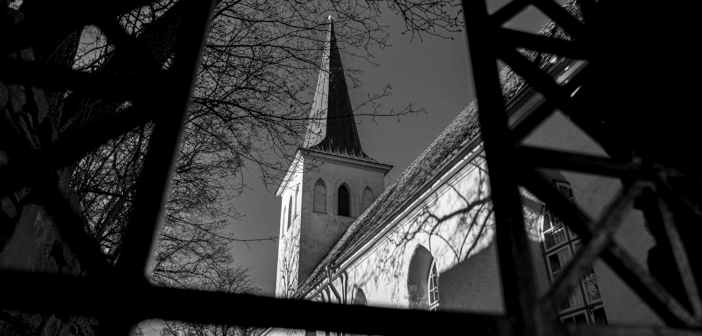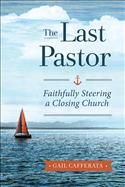Tim Snyder of the Lewis Center Staff writes that closing a church often brings conflict, denial, and shame. But death is a natural passage in the lifecycle of a church. To approach it honestly and gracefully is an act of profound gospel leadership that can bring forth new opportunities and renewed hope.
Let’s face it. There is a significant downward trend in religious participation in the U.S., across a range of measures. Many churches have experienced this trend, and they see its effects on Sunday mornings. Fewer people in the pews, especially young people. Fewer people almost always mean fewer resources. While exact figures are difficult to come by, it is likely to say that in recent years, thousands of churches close each year. And that was before the pandemic.
Part of what compounds this reality is that many church leaders equate congregational health with congregational growth. There may be some correlation between the two, but one unfortunate side effect is that we church leaders often assume that closing churches is, well, bad. We avoid talking about closing churches in the same way we avoid talking about death in our personal lives.
A natural lifecycle
The reality is congregations, just like other kinds of organizations, have a lifecycle — and death is a natural part of that cycle.
I first learned this lesson serving as a director of outreach for a small Lutheran congregation in the East Side neighborhood of St. Paul, Minnesota. The church had hired me with proceeds from renting out their large educational building to a new mission start affiliated with The Church of Jesus Christ of Latter-day Saints. That’s right. The Latter-day Saints were paying me to do outreach for the Lutherans. Go figure!
The congregation thrived as the neighborhood grew in the postwar years as young veterans settled into new jobs and started families. A few of the leaders in their 50s had been baptized as infants in that very same sanctuary. We launched a new after-school program, engaged in community organizing and hosted local candidates for public office, started a community garden for our neighbors, knocked on a lot of doors, and threw block parties in the summers. After years of creative and well-meaning efforts to revitalize, the congregation invited a Hmong congregation into a partnership that would eventually yield the entire property to the Hmong congregation. It was a grace-filled exit for the original congregation.
What does a good ending look like?
But it doesn’t always end that way. More often, closing a church comes with significant conflict, denial, and shame — especially for the pastors who close them. More often than not, pastors and denominational leaders find themselves unprepared and unequipped to close a church. In The Last Pastor: Faithfully Steering a Closing Church (Westminster John Knox, 2020), Gail Cafferata explores the lessons and insights of over 130 of such pastors. Her takeaway in this uncanny but landmark study? That what is needed most is to accompany closing churches in a hospice-like process where leaders and members alike can discern what a good ending looks like.
Without such a process, pastors themselves will continue to suffer the long-term effects Cafferata documents such as increased stress and poorer health. Some pastors who close churches leave ministry altogether.
Faith and new opportunities
I wonder why it is that we church leaders often resist a ministry’s natural ending. When done well, end-of-life care can create the opportunity to reinvest significant resources into something new or into the wider church. More importantly, closing a church faithfully invites a theological leadership moment. It is a moment where we can hold together the joys and laments of God’s people. It is a moment where we can trust in the promise that God is not limited to the four walls of our church buildings. And it is a moment where we can proclaim that death no longer has the final word. In short, it’s a moment of profound gospel leadership.
That’s what I learned from Cafferata’s The Last Pastor, and I trust many other church leaders will benefit from this sobering but important research in congregational studies.
Related Resources
- The Last Pastor: Faithfully Steering a Closing Church (Westminster John Knox, 2020) by Gail Cafferata
- Closing a Congregation as an Act of Faithfulness by Lee Ann M. Pomrenke







